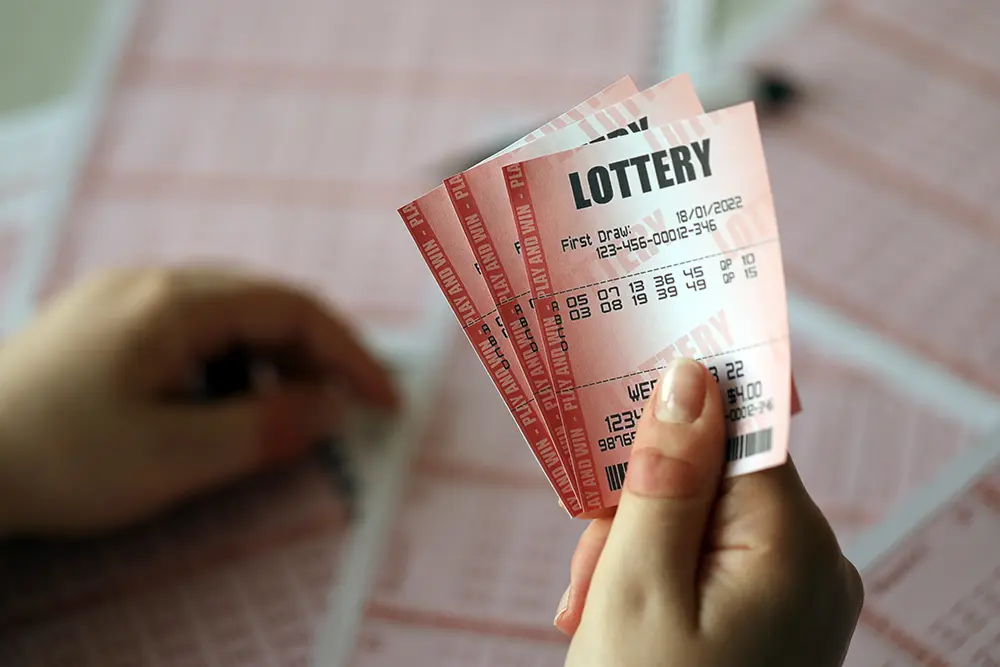What Is a Gambling Disorder?
A gambling disorder, also known as problem gambling or compulsive gambling, is a condition that affects approximately two million people in the United States. Gambling is an activity that involves risking something – typically money – in the hope of receiving something of greater value in return. Although it is legal and can be fun, gambling is a form of entertainment that can become addictive due to the highs and lows associated with winning and losing.
An obsessive gambling results in an uncontrollable urge to persist with gambling, even though it is causing considerable damage to a person’s mental health, physical well-being, and lifestyle. The addictive nature of gambling is due to how the brain’s reward system is stimulated – with the release of dopamine – whether a win or loss occurs. It is similar to the experience that those who consume drugs or alcohol are familiar with.
Problem Gambling
Numerous factors can contribute to a gambling disorder:
1. The “high” which is attained when betting
2. Desperation for money
3. The allure of the lively, thrilling gambling scene
While some can enjoy gambling opportunities every now and then, others depend on the fulfillment it provides – and they cannot stop gambling as a result. Gamblers Anonymous sums it up as regular gamblers are able to control their activities, whereas compulsive gamblers are controlled by these same activities.
Sufferers of this affliction need to seek treatment straight away. When losing money gambling, it can quickly lead to significant mental health problems (including anxiety, depression, suicidal ideation, etc) and financial stress. People have lost everything, from their homes to families, due to the downward spiral caused by problem gambling. This is why it’s vital to identify the issue and get professional help as early as possible.



Atlantic behavioral health:
Gambling and Sports Betting Mental Health Treatment Massachusetts Specialists
Gambling and sports betting obsession and the attendant mental health issues they create are not something you want to face alone. Professional help can go a long way to correcting problem gambling behavior, allowing people to move forward and leave this crippling disorder in the past. If you live in Massachusetts, professional treatment can be sought from Atlantic, a specialist Psychiatric Day Treatment*. Atlantic provides mental and behavioral health for the anxiety and depression and other mental health conditions that develop as a result of gambling and sports betting problems and problem behaviors.
With help from a mental health professional, you are given the platform to break away from the acute mental health issues that develop and the hold problem gambling has over you. There are no cures for problem gambling. There isn’t an endpoint you can reach. However, like with other psychological illnesses, you are able to construct a treatment plan to push on from your gambling problems and once again enjoy a happy, rewarding life.
There are different treatment options available for gambling disorders. Ultimately, there is no one-size-fits-all solution. This is why, as part of our outpatient counseling and day treatment programs, we construct a bespoke treatment plan that works best for you and your current situation. At Atlantic Behavioral Health, we utilize a range of services to give you the best chance of recovery. These services include:
Treatment takes place in person at our welcoming offices conveniently located in Wilmington, Massachusetts right off of route 93. If you have had repeated unsuccessful efforts to move on from problem gambling and are suffering from anxiety, depression, compulsive thoughts, etc., our trained professionals will assess your past and current situation upon arrival. With this information, we can then put together the support and structure necessary to treat you and improve your mental health so that your gambling obsession can be addressed.
How to Identify You Have a Gambling Problem
Are you unsure if you have a gambling problem? The American Psychiatric Association notes that “Less than 10% of people with a gambling disorder seek treatment.” Sometimes, this can be due to addicts not realizing they are in so deep with their gambling habits. This is why it’s important to identify if you have a gambling problem. Here are some of the main signs and symptoms:
A need to spend for excitement
One of the most common signs of problem gambling is the necessity to continue spending money to achieve excitement. If you have to keep going even if a bet has come in or you landed a jackpot with a spin of the reels, that signals a certain level of obsession.
An inability to stop
If you have tried to stop or control your gambling but failed to do so, this is a clear indication you have a deep gambling issue.
Not escaping gambling thoughts
Do you continually think about gambling? If you’re not gambling, does this cause you to feel restless or irritable? If you answered ‘Yes’ to both, this suggests you are a gambling addict.
Significant financial loss
Problem gamblers will typically incur large financial losses. A compulsive gambler will often try to borrow money constantly to get their fix, even though it is sending them further into debt.
Concealing gambling
Are you hiding your gambling habits from family and friends? Are you lying about your financial situation and mounting debts? Not only can this harm family relationships, but it also highlights your gambline issues.
Mental disorders
If you are feeling distressed, depressed, guilty, or anxious, it’s possible you could be using gambling to cope with these mental health issues. Mental health disorders are also one of the most common risk factors associated with problem gambling.
Do You Qualify for outpatient counseling for mental health and Gambling Treatment?
Before you decide to opt for Atlantic’s Psychiatric Day Treatment*, it is important to check you are qualified for this problem gambling treatment plan. As a specialist treatment provider, we have certain criteria you must meet before joining our Psychiatric Day Treatment* program. Call today to speak with our staff.
The Benefits of Psychiatric Day Treatment* for problem gambling and its attendant mental health issues
For pathological gamblers who are seeking treatment, here are some of the main benefits gained from signing up for our Psychiatric Day Treatment*:
Effective, Proven Results
Most importantly, treatment is known to deliver effective results for those trying to overcome their anxiety and depression brought on by gambling. It is an intensive form of treatment that teaches useful skills and coping mechanisms, utilizes medication when necessary, and tailors methods along the way, depending on the results. Plus, you gain additional resources and other support to help once you have finished the program.
Flexibility
The most obvious benefit of outpatient counseling and programs, especially when matched against an inpatient treatment provider, is the flexibility it supplies. You don’t have to effectively remove yourself from your current lifestyle. You can still maintain your job and your family routine and live in the comfort of your home.
Provides Structure
With mental health outpatient services, you have to commit to attending multiple sessions each week. This means you have to maintain a specific routine and schedule. By doing so, you gain a level of structure in your life, the type that can cultivate productive, healthy habits.
Improve Your Support System
You may already have a support system made up of family and friends. However, Psychiatric Day Treatment* allows you to further improve the support you have in your battle against problem gambling. Due to being in a group setting, you are surrounded with others in a similar situation – and those pushing towards similar goals. By working together in a supportive, non-judgmental environment, you gain a greater support system for your gambling obsession.


How a Psychiatric Day Treatment* Works for Mental Health Treatment and Problem Gambling
As mentioned, we focus on four main core concepts with our Psychiatric Day Treatment*: individual, group, and family therapy, as well as medication management. Below is a closer look at each treatment type and how it helps those battling against the mental health issues caused by a gambling problem.
Individual Therapy
Individual therapy is an important part of our Psychiatric Day Treatment* process. This can include the use of both behavioral therapy and cognitive behavioral therapy. The former, behavioral therapy, involves exposing you to your gambling behavioral issues, which helps to unlearn while giving you coping skills to reduce that gambling urge. Cognitive behavioral therapy, on the other hand, helps to replace those unhealthy, negative beliefs with positive, healthy ones.
Group Therapy
Our Psychiatric Day Treatment* has a strong focus on group therapy. With self-help support groups, you are able to discuss your gambling problem with others in the same boat. Self-help groups are not only beneficial for opening up about your issues and getting helpful, relevant advice but also for building up your support network.
Family Therapy
Family-based therapy could also be recommended as part of your treatment. Getting family members directly involved, where they are able to discuss and support you directly, can help with your recovery. After all, a family member discussing their concerns and worries can have a significant impact – one that is more likely to push you towards a positive change.
Medication Management
Medication can prove to be a helpful addition to your treatment strategy. This is certainly the case if you are dealing with other problems alongside your gambling. Bipolar disorder, anxiety, or depression can often be intertwined with a gambling disorder, and the use of mood stabilizers and antidepressants can help. Additionally, narcotic antagonists – the type that can be used to treat substance misuse – could help with compulsive gambling.
As part of our work, we analyze each person on a case-by-case basis to see if medication is recommended. We’ll also measure and manage medication to ensure the most effective results are achieved.
Treatment is structured across a program that lasts between 10 and 12 weeks. Sessions take place at different times across the day, Monday to Thursday, to fit in best with your schedule.
Start your treatment for Anxiety and Depression caused by problem gambling Today
It is important you attempt to recover from obsessive gambling as soon as possible. However, success rates are not high for those that go it alone. To move on from excessive gambling and lead a healthier life, you need help. You need professional support, advice, and tactics to lay the foundation necessary for recovery.
That is where we can help. Our Massachusetts Psychiatric Day Treatment* center is here to welcome you and provide the bespoke treatment necessary for your mental health needs from problem gambling. Get in touch today to learn more and schedule an appointment.







